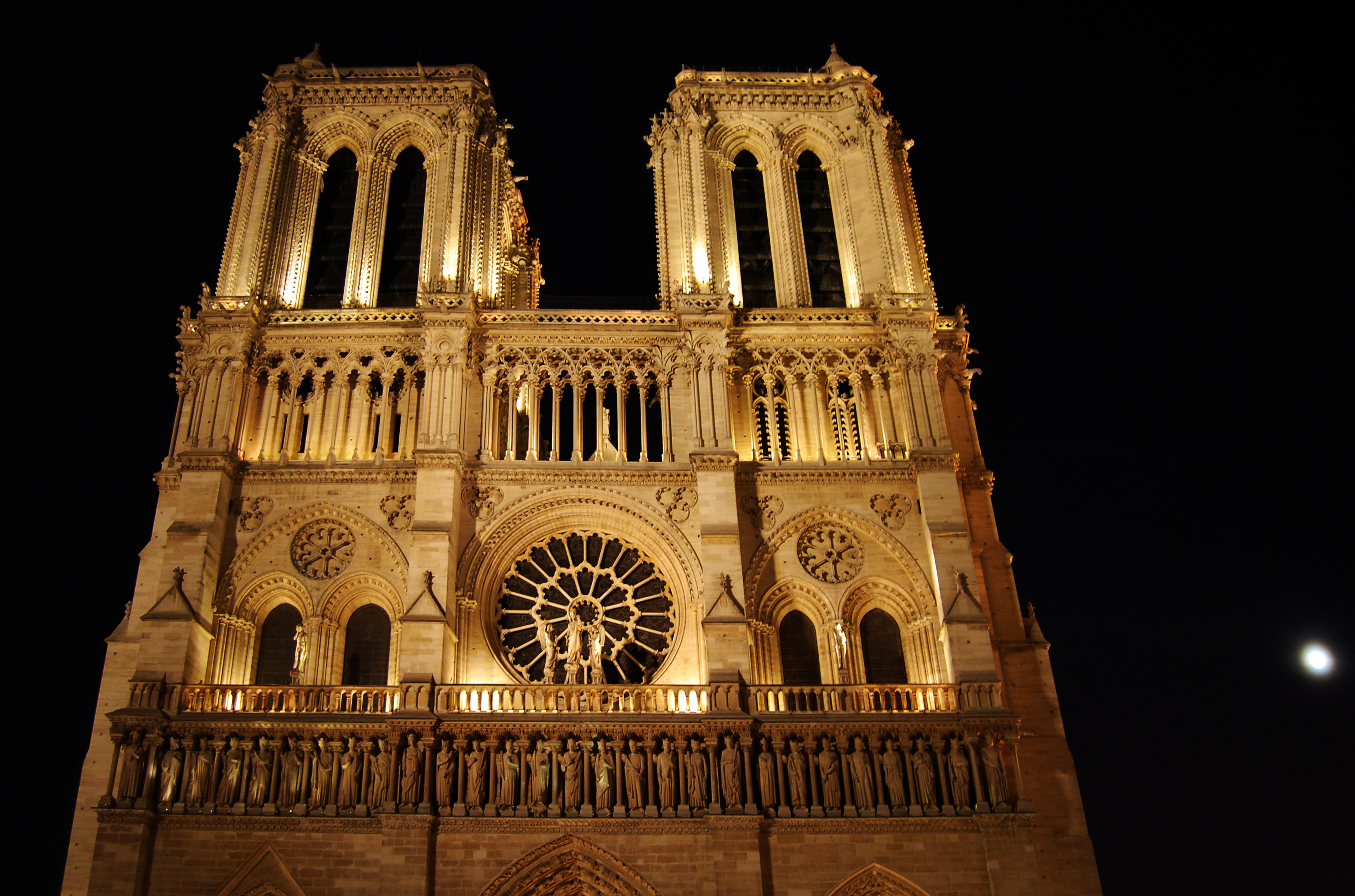There are three conditions which often look alike
Yet differ completely, flourish in the same hedgerow:
Attachment to self and to things and to persons, detachment
From self and from things and from persons; and, growing between them, indifference
Which resembles the others as death resembles life,
T. S. Eliot, "Little Gidding."
 |
| A picture of a messy garage which is not ours, added solely for the sake of hyperbolic illustration |
A little while ago my wife and I were cleaning out our garage. As garages go it was not terrible. That is, I have seen worse. There was room to walk, and most of the stuff in the garage had a plan and a purpose attached to it, of the "we-really-need-to-remember-to-put-that-thing-in-the-car-so-we-can-drop-it-off-at-so-and-so's-next-time-we-are-in-the-area" variety. And yet, at the end of the day, we had two pickup truck loads of stuff to take to St. Vincent de Paul (the local Catholic equivalent of Goodwill.) Where does it all come from?
 |
| Standard issue Vietnam-era Load Bearing Equipment, non-modified |
Sometimes it was a bit of a wrench, letting things go. More often for her than for me, since I have had to move around so much I have deliberately avoided accumulating too much stuff. However, even I had a moment of soul searching. It might seem strange, but I had to think long and hard before getting rid of my Special Forces Qualification Course Load Bearing Equipment (LBE).
Yes, that's right. I had kept the LBE that I wore throughout the two years I spent in the Q course, because I had modified it so much that the Army supply folks would never take it back. I had removed all the metal clips and buckles and replaced them with 550 cord. I had cut the shoulder pads off because they interfered with the rucksack pads. I had two compass pouches (primary and backup), two ammo cases, and two canteen cases with a canteen cup, black and unreturnable from being shoved into too many campfires and hung over too many Dakota fire holes. I had shortened it so that it would ride high on my chest, about the level of my sternum, because I did not like the belt interfering with the kidney pad of the rucksack underneath it, and I had my name-tape sewn on one of the diagonal back straps.
Of course it was not the modifications that made me reluctant to get rid of it. Those had taken time and effort, but I was never going to use it again. Ever. I would never wear it in combat because I cannot wear it over body armor and I get issued more comfortable and practical carriers nowadays. No, it was purely sentimental reasons that made me cling to it. I put blood, sweat, dirt and pain into that thing by the ton. I considered keeping it around simply as a home defense option. Simply throw it at a burglar and he would be so overcome by all the sadness it contained that he would just give up like poor Artax.
It was a part of the most intense period of my life, but I had no use for it. So I got rid of it.
My wife did not understand that. She keeps things that she has an emotional attachment to. I got rid of my LBE because I had an emotional attachment to it. Does that make sense? It sort of did at the time.
You see, I take very seriously the concept of detachment. "Naked I came into this world, and naked I shall leave it," (Job 1:21). I also take very seriously the distinction between this world and the next, and try to remain cognizant of what is most valuable. "Do not lay up for yourselves treasures on earth, where moth and vermin corrupt and thieves break in and steal. Rather, lay up treasure for yourself in Heaven... for where your treasure is, your heart will be also," (Matthew 6:19-21). I do not consider these optional bits of advice, or pious sentiments. They are serious, practical, deadly earnest guides for living. They are survival guides for the spiritual life. I value simplicity, freedom, availability. In a word, detachment. I do not want to be attached to anything. That is, I do not want to allow the things I own to have power over me.

This requires an attitude that may seem radical to others. It means that I have to be guided by what I know rather than by what I see. For instance, if someone backs into my car and totals it, and I get angry and say even so much as one harsh, angry, or spiteful word to him, I am in the wrong. My sin is far worse than his. All he did was damage a thing, a mere object of metal and plastic, whereas I attacked a person who is destined to live forever. This means that if someone owes me money ($100, $500, $50,000, or $1,000,000 makes no difference) and they refuse to pay it, then I would be wise simply to let it go rather than take them to court and get embroiled in a heated argument over it. If the price of getting my money back is losing my peace or thinking hateful things about another human being, then it is not worth it. Human persons are of infinite worth, money and things are of finite worth.
The same is true of things. I have always been hesitant to buy nice furniture, dishes, books, clothes, etc. because once you own something that is pristine, brand new, fancy, expensive, artful, or whatever, you feel bound by it. It limits you. You now feel a responsibility to maintain it, to keep it in the state that it is in, to defend it. It tempts you to worry about getting a scratch on it, or spilling something on it. I read of a fairly wealthy couple who had a habit of donating their car every few years and buying a new one, and when they drove the new car home the first thing they did was take a hammer to it and leave a dozen or so large dents in the hood and doors, just to remind themselves not to be attached to the niceness of this car. Is that crazy? Is it radical?
If I am so attached to my leather couch that I feel the slightest hint of anger when someone scuffs it through carelessness, I am allowing a mere thing to have power over me. Is it so radical now to put a few deliberate scuffs in it, just to forestall that? Or to buy a second-hand couch?
I must be careful, though. As the T. S. Eliot quote above indicates,
detachment is a slippery concept, and wrongful detachment can be more
spiritually deadly than attachment. Detachment does not mean that I have a right to despise nice things. As far as I know I have no right to despise any good thing whatsoever. Human art and craft, the making and sharing of beautiful, useful and interesting things is a highly worthy goal, and in a mysterious sense it is an act of prophecy. As a case in point, yesterday my wife and I bought a beautiful original oil painting by
Don Crook from an art show at the state fair. It depicts the novel "Moby Dick" lying open on a wrinkled sail cloth, with a ship's compass, pipe and lantern around it, and the epic final battle with the white whale literally exploding out of the pages. It is now hanging next to my book shelf as I type this blog. It cost about $250.
 |
| Incredibly realistic painting found at http://www.lifeartworks.com/incredibly-realistic-paintings-photos/ |
It would not be spiritual detachment, but rather churlish lack of imagination, not to admire that painting, and to be inspired by it, not to be grateful for the
gift of talent and the years of work, discipline and sacrifice it took to refine his gift. Nor am I going to take a hammer to the frame or cut a slash across the canvas. I am going to treat it with the respect it deserves. Every work of art is a statement made by the author that says, "Look! I see something beautiful and I want you to see it and be drawn out of yourself as I am." Or: "I see something ugly, which presupposes that there must be beauty. Look at the ugliness, and lament as I do." (This speaks of true art, which must be differentiated from sensationalism, which feeds upon ugliness without looking for beauty.) Each work of art, or meticulously and superfluously carved piece of furniture, is an
image and imitation of the piece of God that the artist sees, which we could not see unless he or she shared it with us.
Detachment does not mean despising these glimpses. In fact, someone who refuses to buy mass-produced crap from Walmart and sacrifices time and money to buy handmade beautiful things and support those who produce them may be extremely detached. Detachment simply means seeing things as they are. Glimpses of God are only glimpses. They are images of God, and therefore sacred; But they are also not God, and therefore utterly expendable.
Every glimpse is temporary, provisional, partial, seen through a glass, darkly. When the glimpse is taken away, as all glimpses are eventually, the measure of our attachment to it is to be found in our sadness in its passing. We are all attached, and we all must be detached from the glimpses so that we may seek the real thing. That is, after all, the purpose of moths, vermin, rust and thieves. They serve a holy function, anticipating the loss of all shades, shadows and images. The final detachment is death and purgatory, but every loss or disappointment or setback here on earth is an opportunity to practice letting go of the crutches that we use to support our fragile egos. Ultimately they are opportunities to surrender our egos, to realize that we are not our surroundings, abilities, thoughts or appetites. At our core we are beloved Children of God, and He is enough.



















